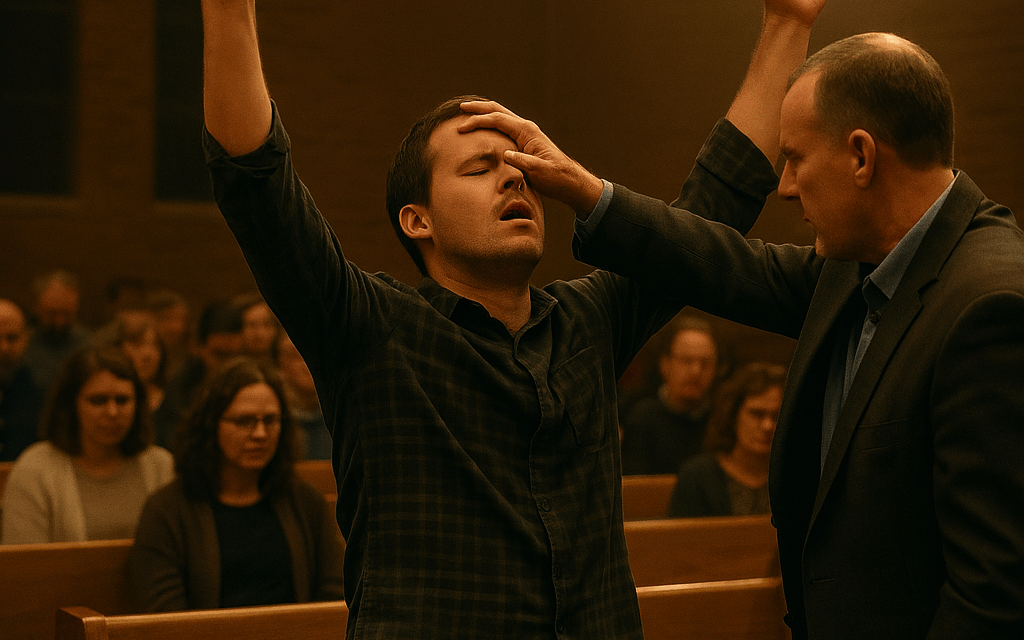To listen to this post click here: https://spotifycreators-web.app.link/e/hRQRo2F3a0b
I thought about starting this blog with one of those comical charismatic clips where someone repeats “Glory, Glory, Glory” over and over. It’s comical because it’s so impetuous and it doesn’t really convey any meaning. By impetuous, I mean in the mindless repetition that is so often associated to the charismatic movement. That may be why it also feels particularly heartbreaking.
But what is the intention here? I mean, what is the intention of the charismatic movement and utilizing the same words over and over again? I don’t think those are questions that are actually asked. So from someone who was formerly part of the charismatic movement. Let me give a subjective answer. It is fairly common for the words that are repeated in a singular fashion repetitiously to be words of honor or recognition such as holy, holy, holy, or Jesus, Jesus, Jesus.
5 We destroy arguments and every lofty opinion raised against the knowledge of God, and take every thought captive to obey Christ,
2 Corinthians 10:5
Scripture calls us to take every thought captive. Yet I imagine many would argue that repeating words of honor and glory to King Jesus does exactly that. The irony is hard to miss—and kind of sad. The words seem to take us captive, rather than the other way around. No longer are the words ascribed to the worship of God set apart in a meaningful way. Don’t get me wrong—if you can slide into a Zen state and mentally unplug from the day’s chaos, then sure, those same words might “feel” like they’re connecting you to God. There’s a lot of power in it to disassociate… from life.
I listened to a worship song in Hebrew today and felt strangely in awe and worship of God—even though I didn’t understand a word. You know sometimes the emotions and spirit of the individual seems to provide this peculiar feeling of being united. When I say “the spirit united us,” I mean that disembodied mental state where your worries vanish and the idea of God takes over your whole being.
Now, a brief word on good ol’ relaxation. Let’s be clear—rest is a blessing. A nap, a deep breath, a moment of calm? All good gifts from God. But they’re not to be confused with actual worship.
We must remember that worship is not a free-for-all—it’s shaped by the will of our Lord and Savior, Jesus Christ. Worship ought to be carried out with reverence and thoughtfulness. Just look at Hebrews 12:28 our worship is meant to be acceptable not arbitrary. Let us look at Ephesians 5:15-20 as well:
15 Look carefully then how you walk, not as unwise but as wise, 16 making the best use of the time, because the days are evil. 17 Therefore do not be foolish, but understand what the will of the Lord is. 18 And do not get drunk with wine, for that is debauchery, but be filled with the Spirit, 19 addressing one another in psalms and hymns and spiritual songs, singing and making melody to the Lord with your heart, 20 giving thanks always and for everything to God the Father in the name of our Lord Jesus Christ,
As Christians, our worship is not with an air of foolishness that discounts the what the will of the Lord is, nor is it filled with a babble or incoherence commonplace to being drunk but rather with the sobriety of the Spirit and full of gratitude in the contemplation of our riches found in the Lord Jesus Christ.
Therefore true unity in worship does not find its foundation in emotionalism like repeating words again and again. Unity in worship is not listening to a worship song and thinking your unity is possessed by your alignment with the singer’s casting off the cares of the world. True unity, worship, and fellowship with the body of Christ calls us to praise God that He has united us with our brothers and sisters across the world through the same Spirit who dwells in us. We draw comfort from the goodness of God at work in the universal church, not from a sense of personal spiritual connectedness rooted in detachment from the world and mindless repetition. In fact, we are united and can praise God for unity the Spirit gives. The Holy Spirit dwells in believers across the world, enabling them to worship God in their own language– worship which we too can glorify God for. So, when we hear a worship song we can understand only through translation, we can still worship with gratitude, knowing God works beyond our comprehension. Now, lift your thoughts to the One who perfects our worship – who will one day reveal how His hand has woven His saints together through all history.







Robert, thank you very much for the kind words, brother. That sincerely means a lot to me that your spirit…